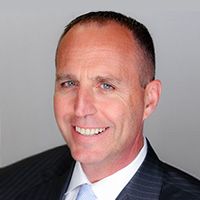Learn from My Best and Worst Financial Decisions
It's normal to have financial regrets. I know I do, and I don't mind sharing. Use them as a growing opportunity. And make sure to celebrate your successes along the way, too.


Profit and prosper with the best of Kiplinger's advice on investing, taxes, retirement, personal finance and much more. Delivered daily. Enter your email in the box and click Sign Me Up.
You are now subscribed
Your newsletter sign-up was successful
Want to add more newsletters?

Delivered daily
Kiplinger Today
Profit and prosper with the best of Kiplinger's advice on investing, taxes, retirement, personal finance and much more delivered daily. Smart money moves start here.

Sent five days a week
Kiplinger A Step Ahead
Get practical help to make better financial decisions in your everyday life, from spending to savings on top deals.

Delivered daily
Kiplinger Closing Bell
Get today's biggest financial and investing headlines delivered to your inbox every day the U.S. stock market is open.

Sent twice a week
Kiplinger Adviser Intel
Financial pros across the country share best practices and fresh tactics to preserve and grow your wealth.

Delivered weekly
Kiplinger Tax Tips
Trim your federal and state tax bills with practical tax-planning and tax-cutting strategies.

Sent twice a week
Kiplinger Retirement Tips
Your twice-a-week guide to planning and enjoying a financially secure and richly rewarding retirement

Sent bimonthly.
Kiplinger Adviser Angle
Insights for advisers, wealth managers and other financial professionals.

Sent twice a week
Kiplinger Investing Weekly
Your twice-a-week roundup of promising stocks, funds, companies and industries you should consider, ones you should avoid, and why.

Sent weekly for six weeks
Kiplinger Invest for Retirement
Your step-by-step six-part series on how to invest for retirement, from devising a successful strategy to exactly which investments to choose.
You can probably picture it: Sitting at the kitchen table or in the home office alone or with a partner or child to do the often-dreaded financial review: Going through your all of your bills and accounts and seeing where you stand.
Sometimes these financial regroups are a relief — thinking, finally, that debt is gone, or our investments are paying off. Other times, however, these sit-downs cause stress and regret around spending or other financial choices.
We’ve all been there. Although these sit-downs are sometimes painful, they are essential — especially considering the price of not doing them.
From just $107.88 $24.99 for Kiplinger Personal Finance
Become a smarter, better informed investor. Subscribe from just $107.88 $24.99, plus get up to 4 Special Issues

Sign up for Kiplinger’s Free Newsletters
Profit and prosper with the best of expert advice on investing, taxes, retirement, personal finance and more - straight to your e-mail.
Profit and prosper with the best of expert advice - straight to your e-mail.
According to new data from New York Life, nearly 70% of Americans have made a financial decision they regret*. Americans’ most common financial regrets include:
- Not starting to save for retirement.
- Relying too much on their credit cards.
- And neglecting to keep up an adequate emergency fund.
Survey respondents said their average recovery from these financial faux pas took anywhere from a couple of years to nearly two decades. For example, the average age at which Americans say they erred in terms of saving for retirement is 34, and the average age of recovery for that problem is 45. The good news is that Americans can and are recovering from their financial regrets, but the impacts can reverberate well into their financial futures.
Seeing this data has called to mind my own financial choices over the years that taught me (sometimes the hard way) how to approach a protection-first financial plan.
The highlight reels
My best financial decision, perhaps ironically, came well before I even considered leaving the restaurant business and becoming a life insurance agent. That decision? Purchasing a whole life insurance policy. This was the first financial product I owned after establishing a savings account. Over the years, this policy has reassured me that my family is protected should the worst happen while also providing emergency cash, acting as a revolving line of credit of sorts by accessing the policy’s cash value (accessing the cash value reduce both death benefit and available cash surrender value). It became the backbone of my financial decisions and gave me peace of mind to make other choices, knowing I had protection in place.
Another money move I’m proud of is maximizing my company’s 401(k) match. This is vital to growing my retirement fund and receiving the full benefit afforded to me as an employee. Retirement planning can be nuanced and overwhelming at times, but the 401(k) benefit is something to be put to use as an earned part of employment; don’t miss the opportunity to receive “free” money through a company match to have on your side for the years ahead.
My ‘ouch’ moment and road to recovery
Hindsight being 20/20, my personal worst decision was purchasing a home in 2007 … only to lose a significant amount of its value in 2008 when financial markets took a nosedive. Of course, I realize that you can’t predict the future in order to time any purchase — whether it’s stocks or a home — but it’s impossible not to regret my purchase for a couple of reasons:
- I missed the boat on a HELOC. In the past when purchasing a home, I would typically open a home equity line of credit shortly after closing to have available in the event of an emergency. However, in this case I had forgotten to do so, and then no longer qualified once the real estate market crashed. This could have been a helpful way to lock in rates and options in case of an emergency, like the recession.
- I went by conventional wisdom without questioning it. The conventional advice I’d always received about a home being the “safest” asset and being better than renting didn’t quite ring true, teaching me a big lesson. I’m not alone — 42% of adults surveyed also received the advice that “buying a home is better than renting.” That’s not always the case. As a result, I now take real estate in stride, considering the personal impact and economic environment before making any big decisions. (And when I recently relocated to New York, I opted to rent an apartment while I adjust to my new routine and surroundings.)
When it comes to financial decisions, I’ve learned it’s important to focus on the progress made to overcome the less-than-desirable outcomes. By tracking my victories (big and small) and learning from the more challenging situations, I have a better understanding of what I’d like the financial future for myself and my family to reflect and how to achieve it.
For those Americans identifying and overcoming their financial regrets, having a plan in place will enable them to get back on track faster and with a clearer picture of their goals in mind. Don’t be afraid to get started. You’re not alone, and there are many resources available to help guide you along the way.
*These findings are from a poll conducted by Morning Consult on behalf of New York Life from August 20-24, 2019, among a national sample of 2200 adults. The interviews were conducted online and the data were weighted to approximate a target sample of adults based on age, race/ethnicity, gender, educational attainment and region. Results from the full survey have a margin of error of plus or minus 2 percentage points.
This article is for informational purposes only and should not be construed as an investment advice or solicitation for any particular financial instrument.
Profit and prosper with the best of Kiplinger's advice on investing, taxes, retirement, personal finance and much more. Delivered daily. Enter your email in the box and click Sign Me Up.

Brian G. Madgett, CLU®, ChFC®, is Head of Consumer Education at New York Life. In this role, Brian helps families across the country learn how to build better futures, rooted in a protection-first financial plan, for themselves and those they love. Brian began his nearly 30-year career as a New York Life financial specialist and has since held several leadership roles within the company. He earned his Bachelor of Science degree from John Jay College.
-
 Betting on Super Bowl 2026? New IRS Tax Changes Could Cost You
Betting on Super Bowl 2026? New IRS Tax Changes Could Cost YouTaxable Income When Super Bowl LX hype fades, some fans may be surprised to learn that sports betting tax rules have shifted.
-
 How Much It Costs to Host a Super Bowl Party in 2026
How Much It Costs to Host a Super Bowl Party in 2026Hosting a Super Bowl party in 2026 could cost you. Here's a breakdown of food, drink and entertainment costs — plus ways to save.
-
 3 Reasons to Use a 5-Year CD As You Approach Retirement
3 Reasons to Use a 5-Year CD As You Approach RetirementA five-year CD can help you reach other milestones as you approach retirement.
-
 The 4 Estate Planning Documents Every High-Net-Worth Family Needs (Not Just a Will)
The 4 Estate Planning Documents Every High-Net-Worth Family Needs (Not Just a Will)The key to successful estate planning for HNW families isn't just drafting these four documents, but ensuring they're current and immediately accessible.
-
 Love and Legacy: What Couples Rarely Talk About (But Should)
Love and Legacy: What Couples Rarely Talk About (But Should)Couples who talk openly about finances, including estate planning, are more likely to head into retirement joyfully. How can you get the conversation going?
-
 How to Get the Fair Value for Your Shares When You Are in the Minority Vote on a Sale of Substantially All Corporate Assets
How to Get the Fair Value for Your Shares When You Are in the Minority Vote on a Sale of Substantially All Corporate AssetsWhen a sale of substantially all corporate assets is approved by majority vote, shareholders on the losing side of the vote should understand their rights.
-
 How to Add a Pet Trust to Your Estate Plan: Don't Leave Your Best Friend to Chance
How to Add a Pet Trust to Your Estate Plan: Don't Leave Your Best Friend to ChanceAdding a pet trust to your estate plan can ensure your pets are properly looked after when you're no longer able to care for them. This is how to go about it.
-
 Want to Avoid Leaving Chaos in Your Wake? Don't Leave Behind an Outdated Estate Plan
Want to Avoid Leaving Chaos in Your Wake? Don't Leave Behind an Outdated Estate PlanAn outdated or incomplete estate plan could cause confusion for those handling your affairs at a difficult time. This guide highlights what to update and when.
-
 I'm a Financial Adviser: This Is Why I Became an Advocate for Fee-Only Financial Advice
I'm a Financial Adviser: This Is Why I Became an Advocate for Fee-Only Financial AdviceCan financial advisers who earn commissions on product sales give clients the best advice? For one professional, changing track was the clear choice.
-
 I Met With 100-Plus Advisers to Develop This Road Map for Adopting AI
I Met With 100-Plus Advisers to Develop This Road Map for Adopting AIFor financial advisers eager to embrace AI but unsure where to start, this road map will help you integrate the right tools and safeguards into your work.
-
 The Referral Revolution: How to Grow Your Business With Trust
The Referral Revolution: How to Grow Your Business With TrustYou can attract ideal clients by focusing on value and leveraging your current relationships to create a referral-based practice.